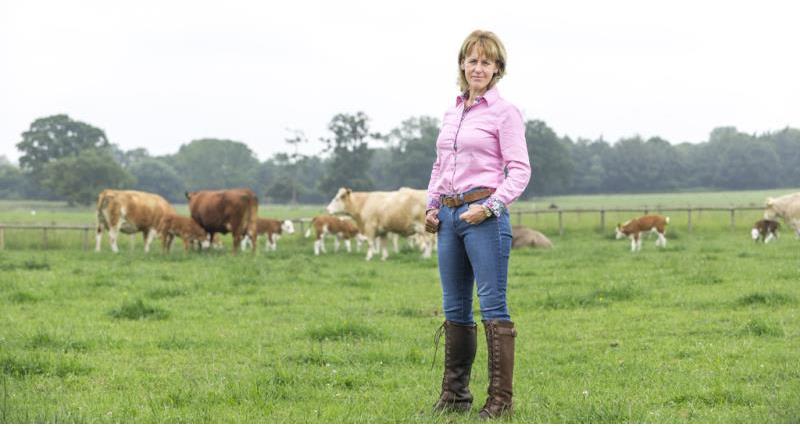Minette said:
For generations the land I farm in Wiltshire has been grazed by sheep and cattle, producing some of the most climate-friendly meat in the world from Britain’s extensive grasslands. I am not unusual in this.
You can only imagine my reaction when I tuned into the BBC’s documentary this week ‘Meat: a threat to our planet?’ to see UK methods of production not only being overlooked, but by implication tarred with the same brush as the very extremes of the most intensive meat production in the world.
This programme, watched by millions of Brits, showed farming which would be illegal here in Britain. It implied all meat production throughout the world has the same dangerous environmental consequences, overlooking the sustainable farming methods thousands of farmers in this country practice.
It would be astonishing for any broadcaster to air something this misleading and misrepresentative but for the BBC to do it on primetime TV really did leave me aghast.
I want to make clear that what people saw in this documentary absolutely does not represent what British farmers and British agriculture stands for.
We do not clear rainforest to make way for beef and lamb production. British meat does not come from the ashes of the Amazon.
Our farmers produce some of the most sustainable food in the world and it is deeply frustrating that it is not being covered in flagship programming by our national broadcaster.
Was the aim of the documentary to deliberately show all farming methods to be the same? That is clearly not accurate or helpful to the global goal of tackling climate change. Instead we had the presenter sharing how the experience led to her reducing her meat consumption and cutting out red meat completely on the basis of what she saw in another part of the world.
More of the NFU's work on livestock and climate change
Watch now: British red meat production is part of the solution to climate crisis, universities hear
NFU holds livestock and climate change seminar
BBC documentary shows why food standards must be upheld in future trade deals
Download our shareable video and infographics
Share your farming story and help to showcase the best of British livestock farming
Focusing on meat production on another continent does nothing to help British people make informed choices about food which can be grown and reared in ways that can benefit the environment. If British viewers were to follow her lead, they would be likely to cut out sustainable British meat which is readily available on supermarket shelves and not making any difference to saving the rainforest or many of South America’s diverse landscapes.
If viewers were to follow Liz Bonnin’s knee jerk reaction it could massively impact our farmers here in Britain, who have the environment at the core of what they do. We are one of the only few farming communities to have an aspiration to reach net zero by 2040 – improving productivity and recognising the unique role farmers and their land have to play in capturing carbon and providing renewable energy.
Here in this country we have extensive grasslands that are perfect for grazing livestock; turning inedible grass into high-quality, nutritious protein. They are also an important tool in farmers’ fight against climate change as they store a significant amount of carbon. But none of that was mentioned by the BBC. Despite offers, there was no representation from mainstream British farming.
What this documentary did achieve was to demonstrate what we could expect to see on our supermarket shelves if any future trade deal allows food into Britain which has been produced in ways that would be illegal here.
For me it is simple. Our world-leading standards of environmental protection and animal welfare, values which are at the core of British farming, must under no circumstances be sacrificed in future trade deals. All food imports must meet the standard required of UK farmers.
This is something we know the public feel incredibly strongly about and we cannot be left in a situation where food coming into the country betrays the very values we stand for.
Sub-standard food which would be illegal to produce here – potentially produced at a much greater cost to our environment, animals and climate – would completely undercut our farmers who are working so hard to produce sustainable food for the nation.
The BBC’s documentary is hard hitting when it comes to livestock production in certain parts of the world, but the British people can be assured that here we farm with a conscience. What’s more, we aren’t simply resting on our laurels, but have an ambition to do more and lead the world when it comes to sustainable farming. Not everywhere can say the same.
